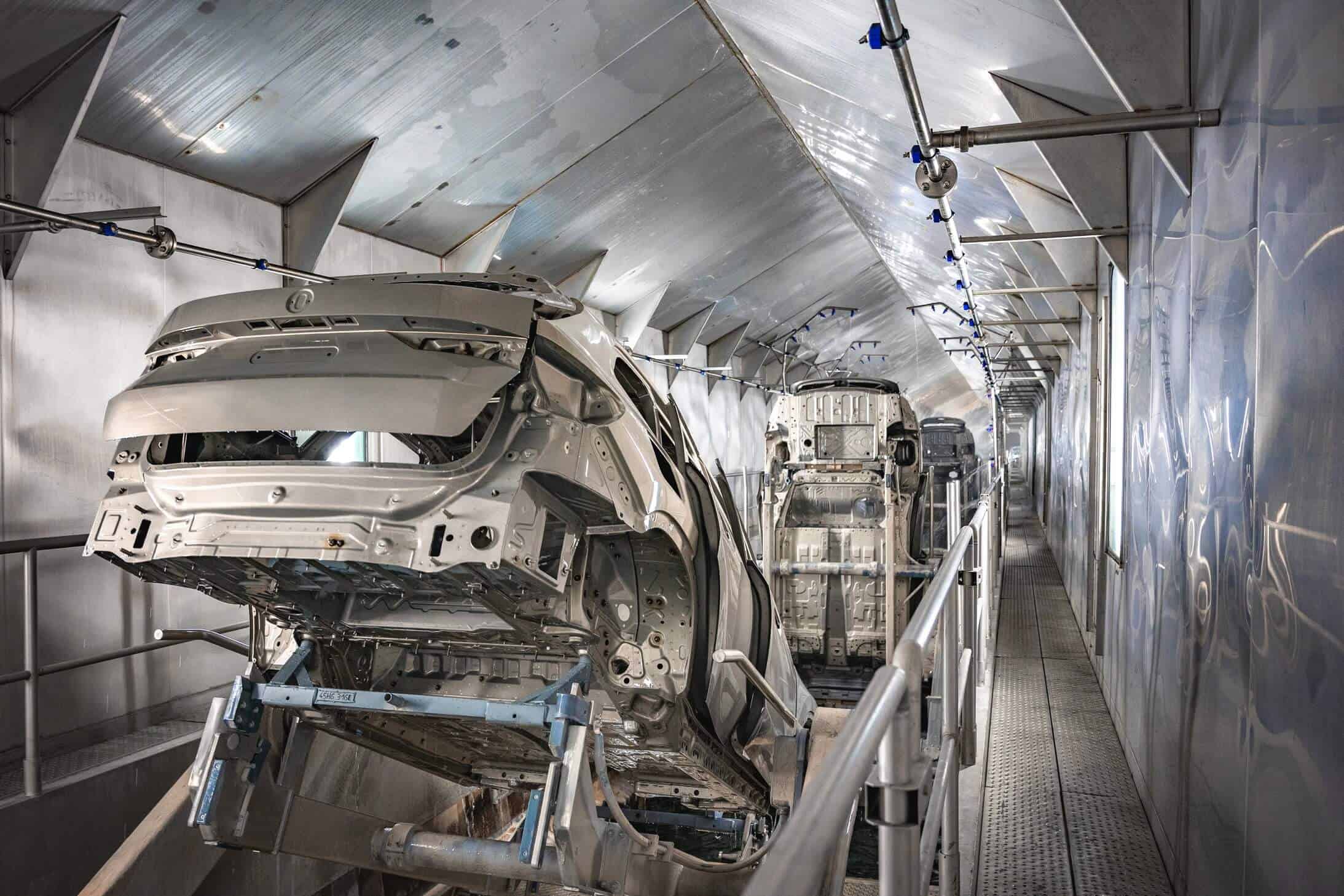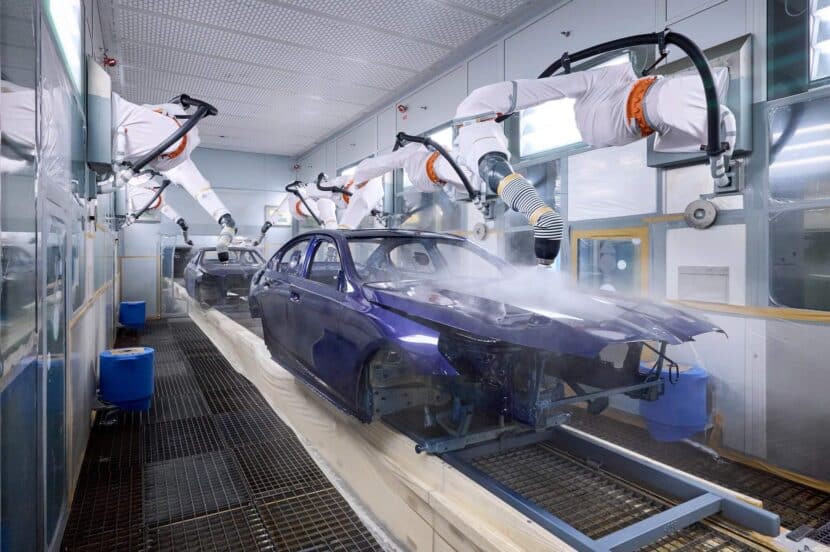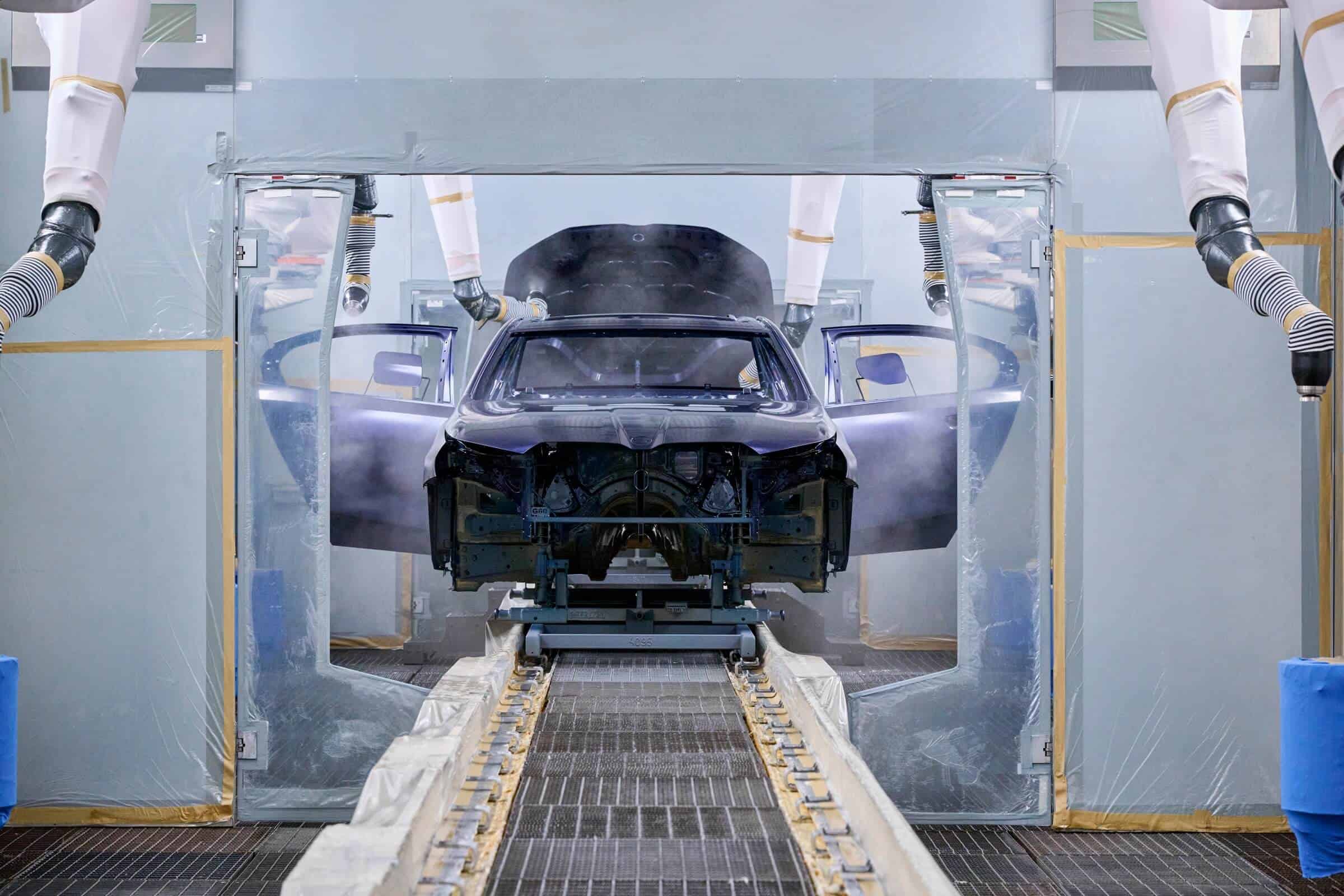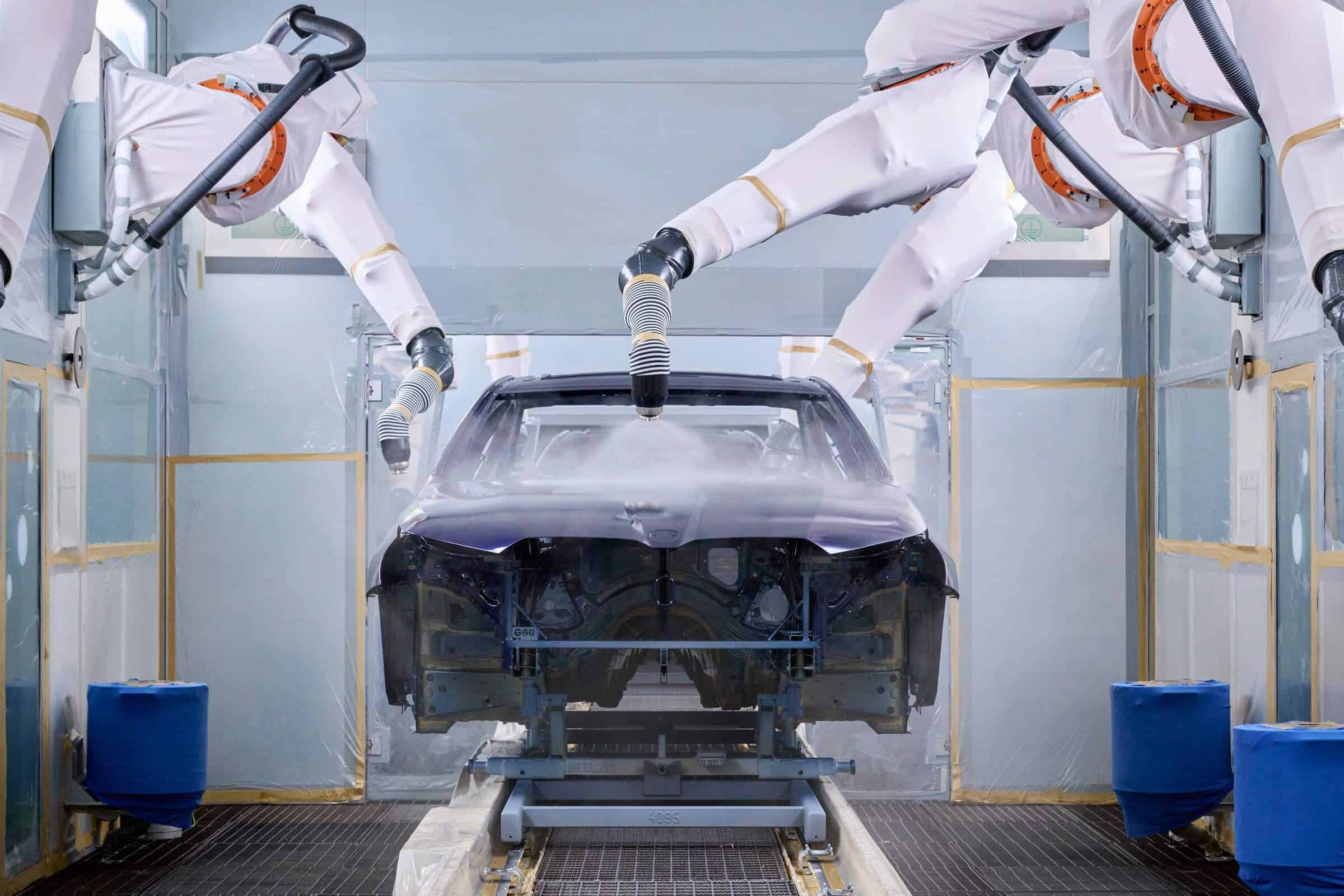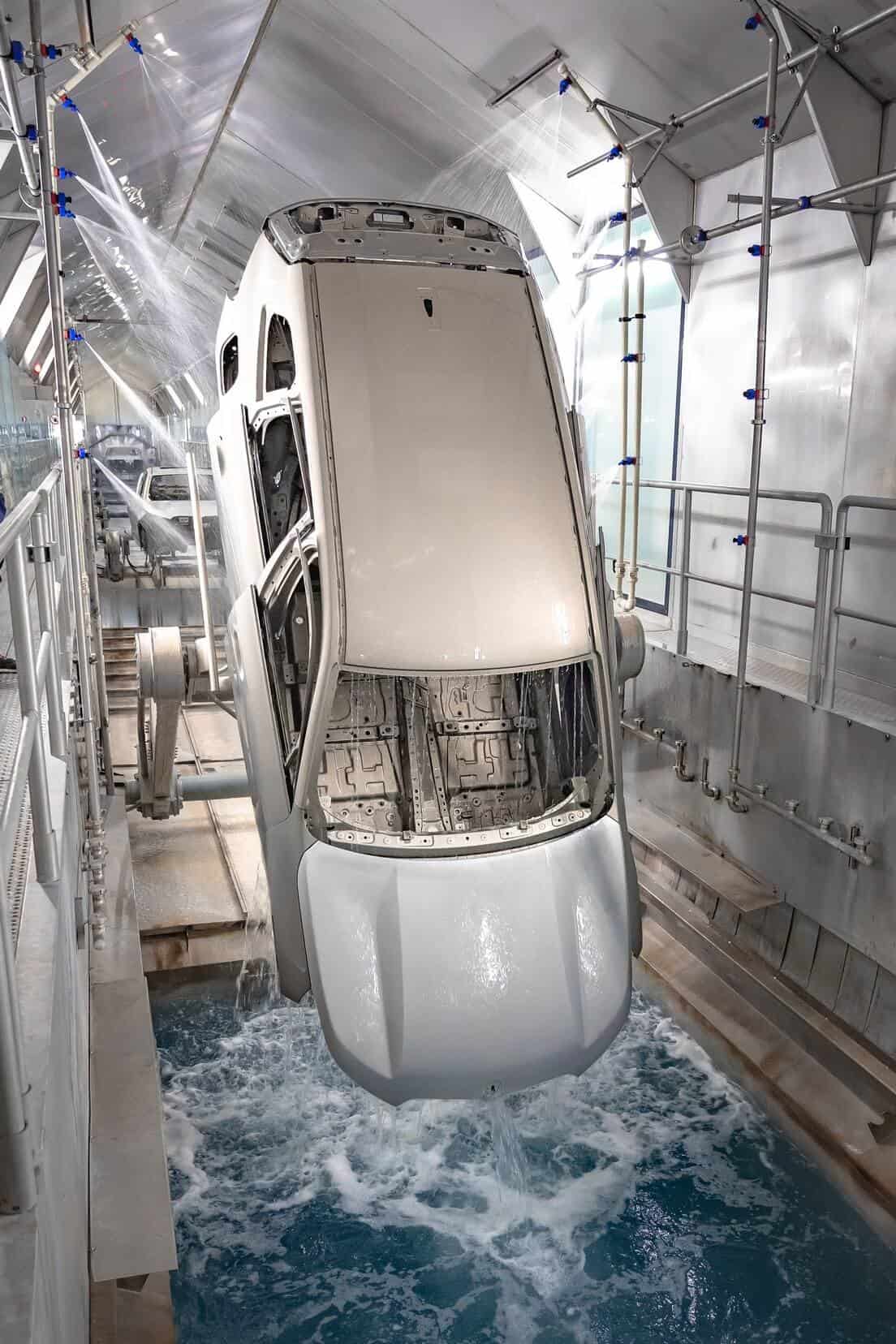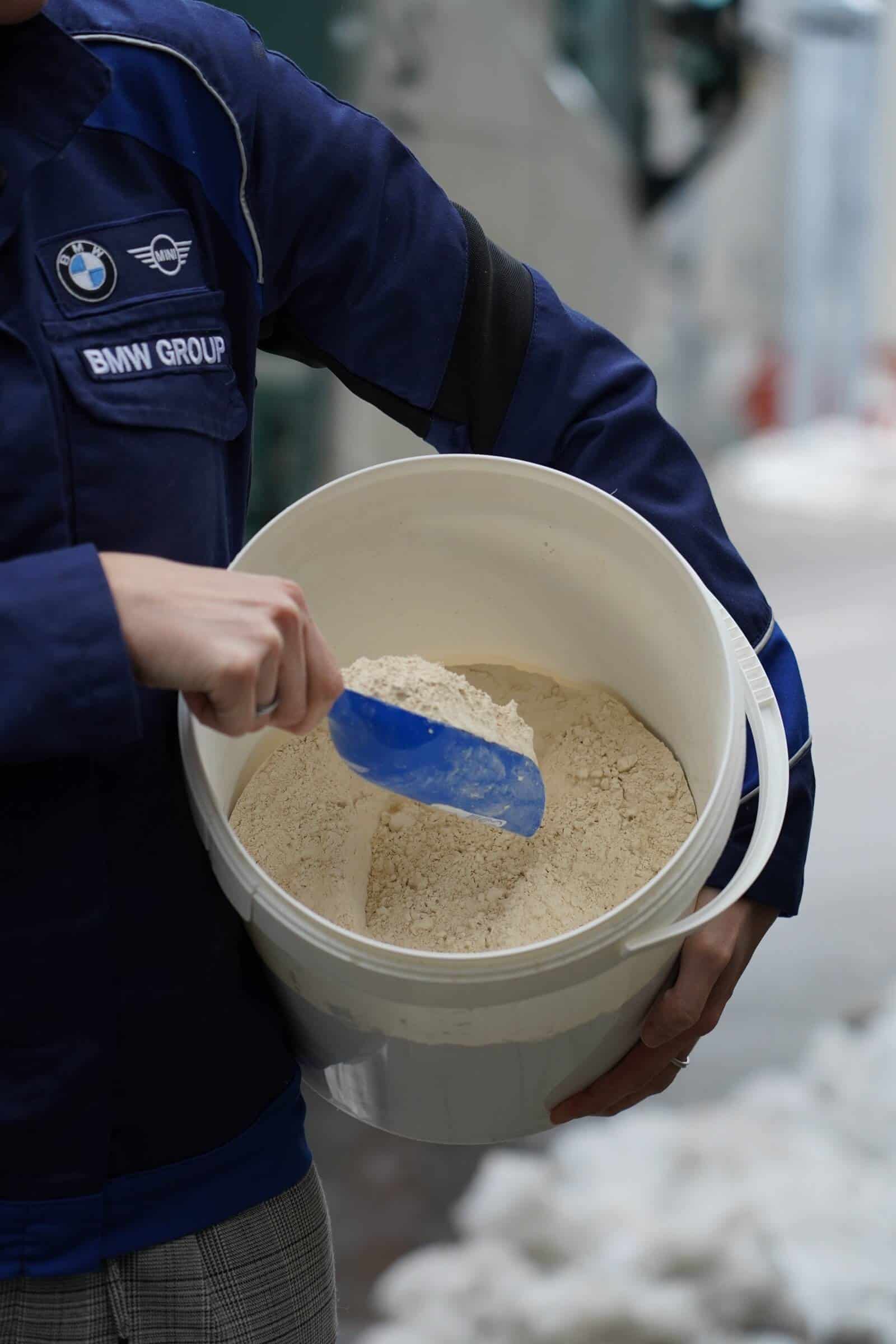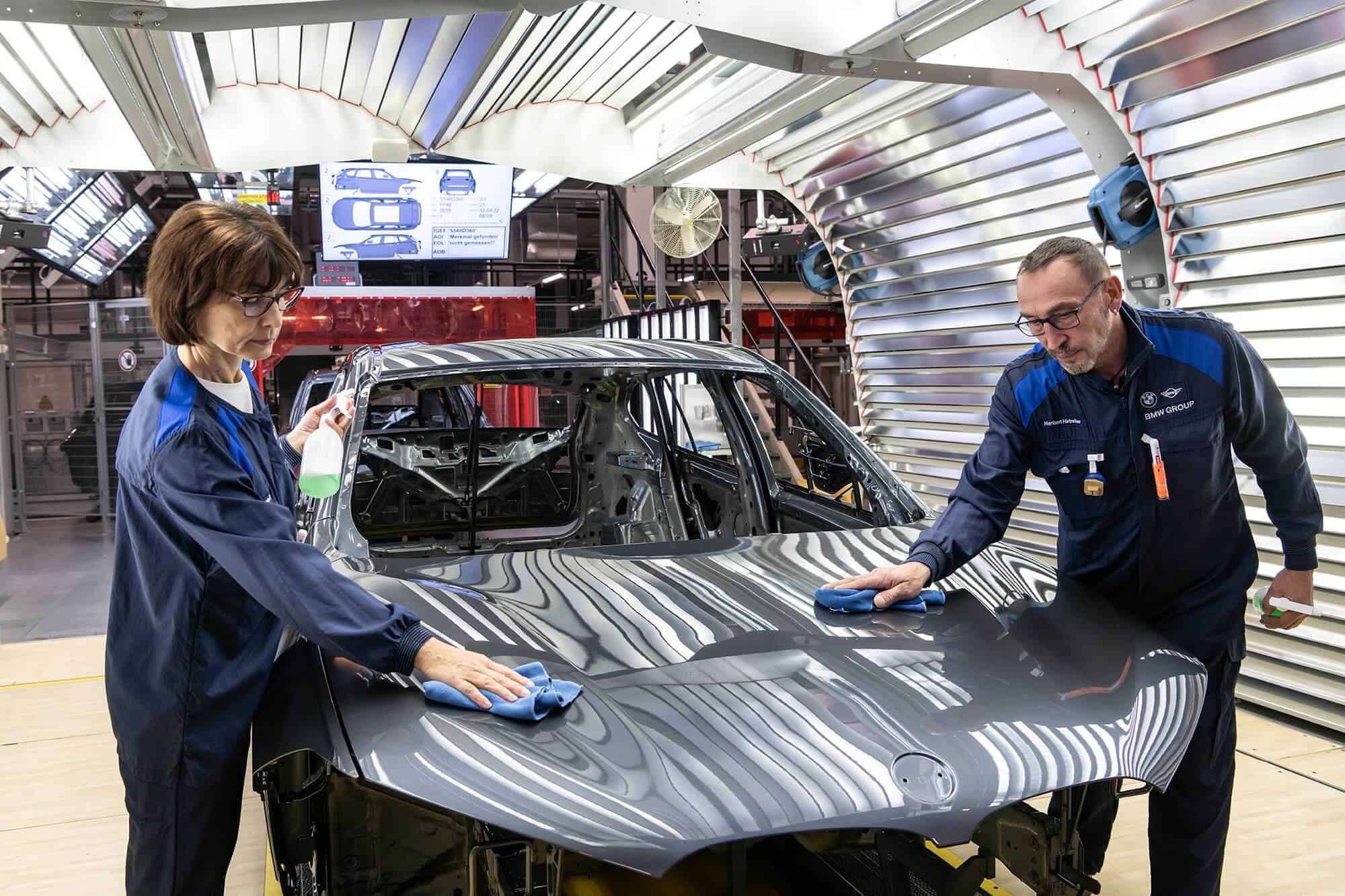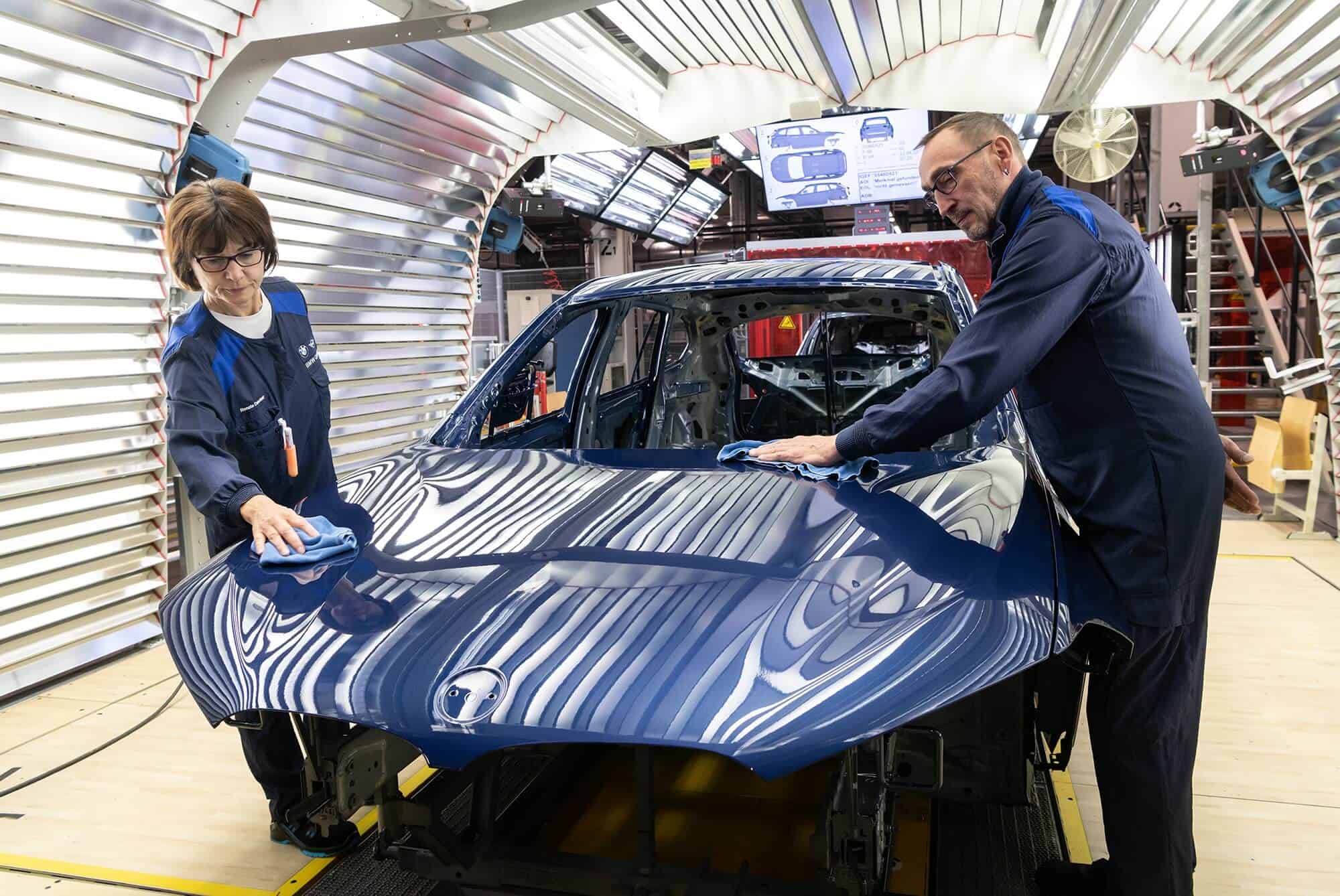The BMW Group delivered nearly 2.4 million vehicles in 2022, so any small sustainability improvements made during the production process yield significant gains at the end of the year. With that in mind, the Dingolfing and Regensburg plants are switching to a more environmentally friendly painting process. It uses dry separation with limestone powder to save a combined 17 million liters (nearly 4.5 million gallons) of water and approximately 17,400 megawatt-hours of energy annually.
BMW notes that the saved water equals the annual consumption of nearly 100 families with four members. The use of dry separation reduces approximately 5,000 tons of CO2 emissions each year, and the recycled limestone powder finds a second life in the construction material industry. This shift is a key component of the German luxury brand’s initiative to achieve a 40 percent reduction in CO2 emissions throughout a car’s life cycle by the end of this decade.
All four paint lines at the Dingolfing factory have already transitioned to dry separation with limestone powder. In Regensburg, the conversion will begin for one of the two paint lines early next year, with the remaining line making the switch in August 2025. The delayed timeline is attributed to production constraints, according to BMW.
It’s crucial to highlight that the car painting process stands out as the most energy-intensive stage in production, where technology can truly make a difference. How does it work? The dry separation of paint particles utilizes limestone powder as a binder. The paint mist that doesn’t adhere to the car’s body is captured with limestone powder instead of water. Consequently, only 20 percent of the air needs to be heated and humidified.
BMW procures limestone powder extracted from the Keilberg mountains near Regensburg. Weekly, three trucks transport this mineral material to the Dingolfing factory, while two trucks make the journey to the Regensburg plant. Approximately 20 kilograms (44 pounds) are utilized for each car before being recycled, primarily serving as a raw material for cement.
Source: BMW


